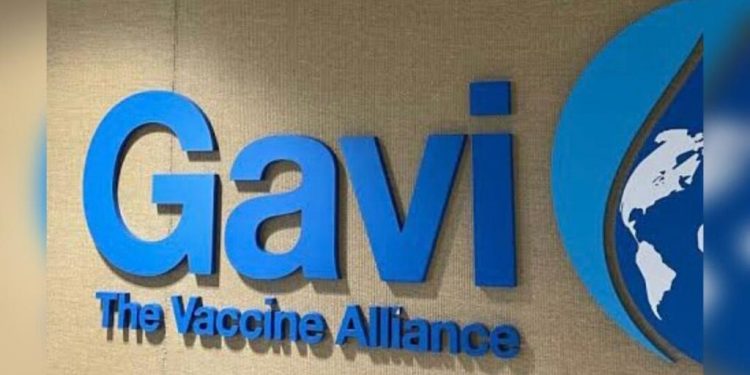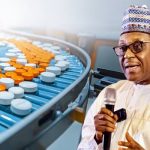The Federal Government of Nigeria, in collaboration with Gavi, the Vaccine Alliance, has launched the $191 million Health System Strengthening Phase 3 (HSS-3) grant to be implemented over the next four years.
The new funding aims to boost Nigeria’s health system and immunization efforts in a bid to save children from deaths caused by vaccine-preventable diseases.
Speaking during the launch on Friday, the Coordinating Minister of Health and Social Welfare, Prof. Ali Mohammed Pate, expressed deep appreciation to Gavi for its sustained investment in Nigeria’s health sector over the past decades.
He said the government and people of Nigeria remain grateful to Gavi and will not take its partnership and collaboration for granted.
Prof. Pate stated that Gavi’s investments have saved millions of lives and enabled Nigeria’s immunization program to recover from the adverse effects of the COVID-19 pandemic. He noted that Gavi’s support also facilitated the introduction of new vaccines, including HPV, malaria, and Mpox vaccines.
Reaffirming the government’s commitment to equitable healthcare, Pate stated:
“The government of Nigeria, under the leadership of President Bola Ahmed Tinubu, is passionate about making quality health services equitably accessible and affordable to all, and rapidly reducing maternal and child deaths.”
He emphasized that Gavi’s mission to save lives and protect health aligns with the administration’s vision of reducing physical and financial pain and producing better health outcomes for Nigerians.
The minister added that health investment is seen as a key dividend of democracy, and the provision of quality healthcare is viewed as a fundamental right of every citizen under the Renewed Hope Agenda.
He highlighted the yearly increase in Nigeria’s health budget and efforts to mobilize domestic resources to bridge funding gaps caused by policy changes by traditional donors. He assured stakeholders that Gavi and other donor investments would be complemented by domestic funds and managed with a high level of accountability at all levels of governance.
Pate also commended the leadership of Nigeria’s health teams, particularly the National Primary Health Care Development Agency (NPHCDA) and other agencies, for successfully implementing HSS-2.
Speaking at the event, Dr. Muyi Aina, Executive Director of the NPHCDA, emphasized that HSS-3 is aimed at consolidating the achievements of HSS-1 and HSS-2.
He described HSS-3 as a critical tool to implement Pillar 3 of the Ministry of Health’s priorities, which focuses on effective frontline health security through the Primary Health Care (PHC) system, with a strong commitment to ensuring no child is left unimmunized.
Dr. Aina highlighted that HSS-1 and 2 significantly expanded access to life-saving vaccines. He noted that reforms, such as the Identify, Enumerate, and Vaccinate (IEV) strategy, are being implemented to reduce the number of zero-dose children and improve the quality of health campaigns.
He said:
“We have observed deficits in coordination and strategic integration of programs and interventions across government; inadequacy of data and information systems; as well as limited capacities for effective financial management and accountability.”
Dr. Aina assured that the implementation of HSS-3 would bring positive, citizen-focused improvements in immunization and other PHC services. He urged stakeholders to actively participate in the implementation of Gavi HSS-3 for the benefit of the country and humanity at large.
Alex de Jonquières, Gavi’s Director of Health Systems and Immunization Strengthening, remarked that Nigeria currently has the highest number of children globally who have not received a single routine vaccine dose—contributing to recurring outbreaks and preventable deaths.
He announced:
“To address this, we are launching Gavi’s next HSS-3 grant with another $191 million of funding over the next four years. This grant is one of the largest ever made by Gavi and is intended to help extend the reach of the health system to 1.8 million zero-dose children and increase immunization coverage to 84% by 2028.”
He said the grant was designed by the Nigerian government through an inclusive planning process involving the Federal Ministry of Health, NPHCDA, other federal and state agencies, and development partners such as WHO, UNICEF, civil society, and the private sector.
The grant received strong endorsement from Gavi’s technical review panel for its strategic vision, integration of digital innovation, and focus on sustainability.
Jonquières added that the National Traditional Leaders’ Committee will be instrumental in amplifying immunization efforts at the sub-national level.
He further revealed:
“In addition, we are investing close to $100 million this year in a vaccination campaign to protect over 100 million children against measles and rubella—our largest ever such campaign. This support is aligned with Nigeria’s health sector reform programme led by Prof. Pate.”
UNICEF: Need for Stronger Leadership and Health Financing
Also speaking, Cristian Munduate, UNICEF Representative in Nigeria, appreciated the contributions of all stakeholders in strengthening the Nigerian healthcare system but acknowledged that significant gaps remain.
She stressed the need for:
- Stronger leadership and management oversight
- Prioritization of health financing by both government and private sectors
- Strengthening PHC services via the Basic Healthcare Provision Fund (BHCPF)
- Ensuring accountability in resource use
- Improving workforce capacity through training and better working conditions
- Scaling up digital health solutions for efficient service delivery and data-driven decision-making
Munduate called for more collaborative efforts and global partnerships to ensure sustainable solutions for Nigeria’s health sector.










